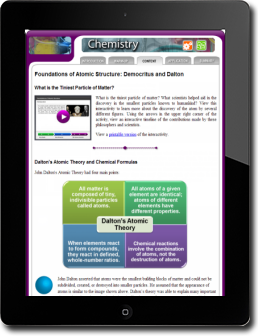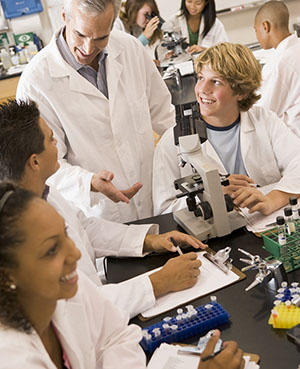Developmental Module
 In this supplementary module, you will find resources and documents which will help you as you navigate through this course. If you need extra help with an assignment, click on the links below.
In this supplementary module, you will find resources and documents which will help you as you navigate through this course. If you need extra help with an assignment, click on the links below.
Course Icons and Glossary
The course icon library can be accessed for definitions of each icon used in this course.
![]() You can access the course glossary by clicking on the glossary icon from the top of the topic pages in the course. Note that this link only appears on the main course pages and not on any of the documents or presentations that are linked to the course.
You can access the course glossary by clicking on the glossary icon from the top of the topic pages in the course. Note that this link only appears on the main course pages and not on any of the documents or presentations that are linked to the course.
Chemistry and How To Resources
This section contains procedures for some tasks you may be required to perform on your computer in order to complete this course.
- Accessing and Viewing Course Presentations
- Citing Resources MLA Style
- Creating Effective Presentation Projects
- Graph Paper
- How to Take a Screen Shot and Paste It Into a Word Processing Program
- Periodic Table of Elements
- Submitting Assignments
Technology Resources
 The Chemistry course has been designed using rapid e-learning software. This technology allows you to view all of the course components on different types of devices. The software is smart. It will deliver interactivities in a format that is compatible with your device, making this course fully functional on a desktop computer, laptop, tablet, mobile device or a smartphone.
The Chemistry course has been designed using rapid e-learning software. This technology allows you to view all of the course components on different types of devices. The software is smart. It will deliver interactivities in a format that is compatible with your device, making this course fully functional on a desktop computer, laptop, tablet, mobile device or a smartphone.
It is recommended that you use the course management system check before beginning a course. Typically, this tool checks each computer for JavaScript®, browser versions, cookies, and display. In addition to these computer requirements, you will need to have the free Adobe® Flash® Player and the free Adobe® Reader®. Videos in Chemistry are provided in a variety of formats, due to their availability. You should have access to the most current free versions of both Windows Media Player® and QuickTime®.
eMediaVA℠ Videos and Learning Objects
![]() This course utilizes videos and learning objects from eMediaVA℠, a digital media distribution system. When possible, these videos and learning objects have been included in course files; however, due to copyright, some videos and learning objects must be viewed on the eMediaVA℠ website. For information about your username and password for this resource, please contact your course instructor.
This course utilizes videos and learning objects from eMediaVA℠, a digital media distribution system. When possible, these videos and learning objects have been included in course files; however, due to copyright, some videos and learning objects must be viewed on the eMediaVA℠ website. For information about your username and password for this resource, please contact your course instructor.
Chemistry Scientific Investigations

 What Are Scientific Investigations?
What Are Scientific Investigations?
Throughout this course, you will participate in scientific investigations. A scientific investigation is a method of exploring scientific content using the scientific process. Some of these scientific investigations will be hands-on and will use everyday, practical objects that you have around your school or home. Others will be virtual and will incorporate online simulations. For each scientific investigation, you should utilize the scientific investigation report document on the webpage associated with each experience.
These scientific investigations are important. They allow you to test your predictions, use evidence to revisit initial concepts, and examine the connection between your ideas and the scientific views that explain your findings. Through them, you can apply the knowledge and skills that you learn in this course to real-world situations.
Scientific Investigation Reports
Each scientific investigation uses a consistent format that follows the scientific process. As you complete each scientific investigation, you will maintain a scientific investigation report. This report will be a document in which you will need to make predictions, record data, analyze any data collected, and form conclusions about the scientific investigation.
You may see the following terms in a scientific investigation:
- Title - the name of the scientific investigation
- Introduction - any background information from the topic that you will need to know before you begin the scientific investigation
- Objectives - identified learning goals for the scientific investigation
- Hypothesis - a prediction that you formulate based on your prior knowledge and by reading the scientific investigation's procedure
- Required Simulation - information about a simulation used in a scientific investigation
- Equipment and Materials - a list of any special equipment or materials that you will need to perform the scientific investigation
- Procedure and Data Collection - a set of instructions provided to you so that you know how to conduct the scientific investigation; the procedure will prompt you when you need to record data
- Data - a location for you to record your observations and measurements from the scientific investigation
- Data Analysis - a list of questions or prompts that assist you with analyzing the data that you collect during the scientific investigation
- Conclusion - a summary of the findings of the scientific investigation; accepts or refute any hypotheses made at the beginning of the investigation
- Experimental Sources of Error - a list of any sources of error that may occur during the scientific investigation